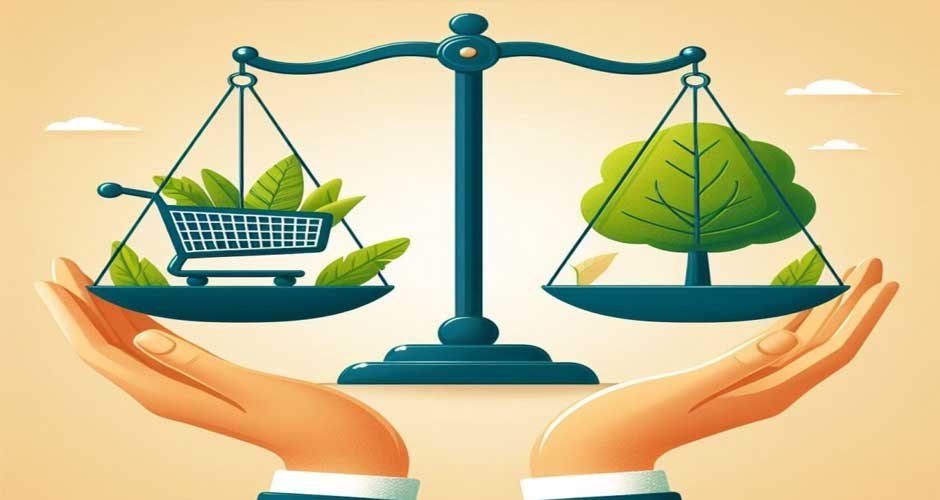In today’s rapidly evolving world, the integration of environmental development and sustainability is more vital than ever. As technology and industrial sectors advance, it becomes increasingly crucial to align these developments with sustainable practices. By doing so, we ensure the long-term health of our planet while supporting continuous innovation and economic growth.
Understanding Environmental Development and Sustainability
Environmental development encompasses the strategic planning and execution of projects impacting the natural world. This includes urban planning, construction, and the deployment of renewable energy systems. Sustainability is about meeting current needs without compromising the ability of future generations to meet theirs. Combining these two concepts is essential for fostering a world where progress does not come at the expense of ecological integrity.
The Role of Technology in Sustainable Development
Modern technology plays a key role in harmonising environmental development with sustainability. Advanced electrical instruments and devices have revolutionised various sectors. Here are some ways technology contributes:
- Energy Efficiency:Using energy-efficient electrical equipment in industries and homes reduces energy consumption and environmental impact.
- Renewable Energy:Deploying solar panels, wind turbines, and other renewable energy devices harness natural resources without depleting them.
- Smart Grids:Smart grid technology ensures optimal electricity distribution, reduces waste, and enhances energy supply reliability.
Sustainable Practices in Environmental Development
Adopting sustainable practices within environmental development requires a multifaceted approach. Here are some strategies to consider:
- Eco-friendly Construction:Utilizing sustainable materials and incorporating green building practices can significantly reduce the carbon footprint of new structures.
- Water Conservation:Implementing systems that recycle and conserve water in both urban and rural developments ensures the sustainable use of this precious resource.
- Waste Management:Effective waste management strategies, including recycling and composting, minimise the environmental impact of development projects.
The Importance of Policy and Regulation
Governments and regulatory bodies play a crucial role in promoting environmental development and sustainability. Enforcing regulations that mandate the use of sustainable materials, the deployment of renewable energy systems, and the implementation of efficient waste management practices is essential. These policies not only drive compliance but also encourage innovation in sustainable technologies.
Community Involvement and Education
Achieving a balance between environmental development and sustainability requires active participation from communities. Educating the public about the importance of sustainable practices and encouraging community involvement in local development projects fosters a culture of environmental stewardship. Community-driven initiatives, such as local recycling programs and urban green spaces, contribute significantly to the broader goal of sustainability.
Challenges and Opportunities
While the path to sustainable environmental development is fraught with challenges, it also presents numerous opportunities. One of the primary challenges is the initial cost of implementing sustainable technologies. However, the long-term benefits, including cost savings from energy efficiency and the reduction of environmental degradation, far outweigh these initial investments.
Moreover, the growing demand for sustainable solutions has spurred innovation in various fields. Companies are now developing more efficient electrical instruments, equipment, and devices that are not only environmentally friendly but also economically viable. This trend is expected to continue, driving further advancements in sustainable technology.
The Role of Reputable Energy Brands
Partnering with reputable energy brands is one of the most effective ways to ensure the success of sustainable environmental development projects.
Established energy brands play a crucial role in environmental development and sustainability, bringing a wealth of expertise and experience to ensure that projects are executed efficiently and effectively.
These reputable brands are often at the forefront of innovation, offering cutting-edge solutions that significantly enhance the sustainability of development projects. By partnering with trusted energy brands, developers can rely on consistent support throughout the entire project lifecycle, from initial planning and deployment to ongoing maintenance and optimisation.
Additionally, through their established supply chains and economies of scale, these reputable brands are able to offer cost-effective solutions that align seamlessly with sustainability goals, further contributing to environmental development efforts.
Walking Towards a Sustainable Future
Fostering a balance between environmental development and sustainability is a complex yet attainable goal. By leveraging advanced technology, adopting sustainable practices, enforcing supportive policies, and engaging communities, we can pave the way for a sustainable future. Partnering with reputable energy brands further amplifies these efforts, ensuring that our developmental aspirations do not come at the cost of our planet’s health.






